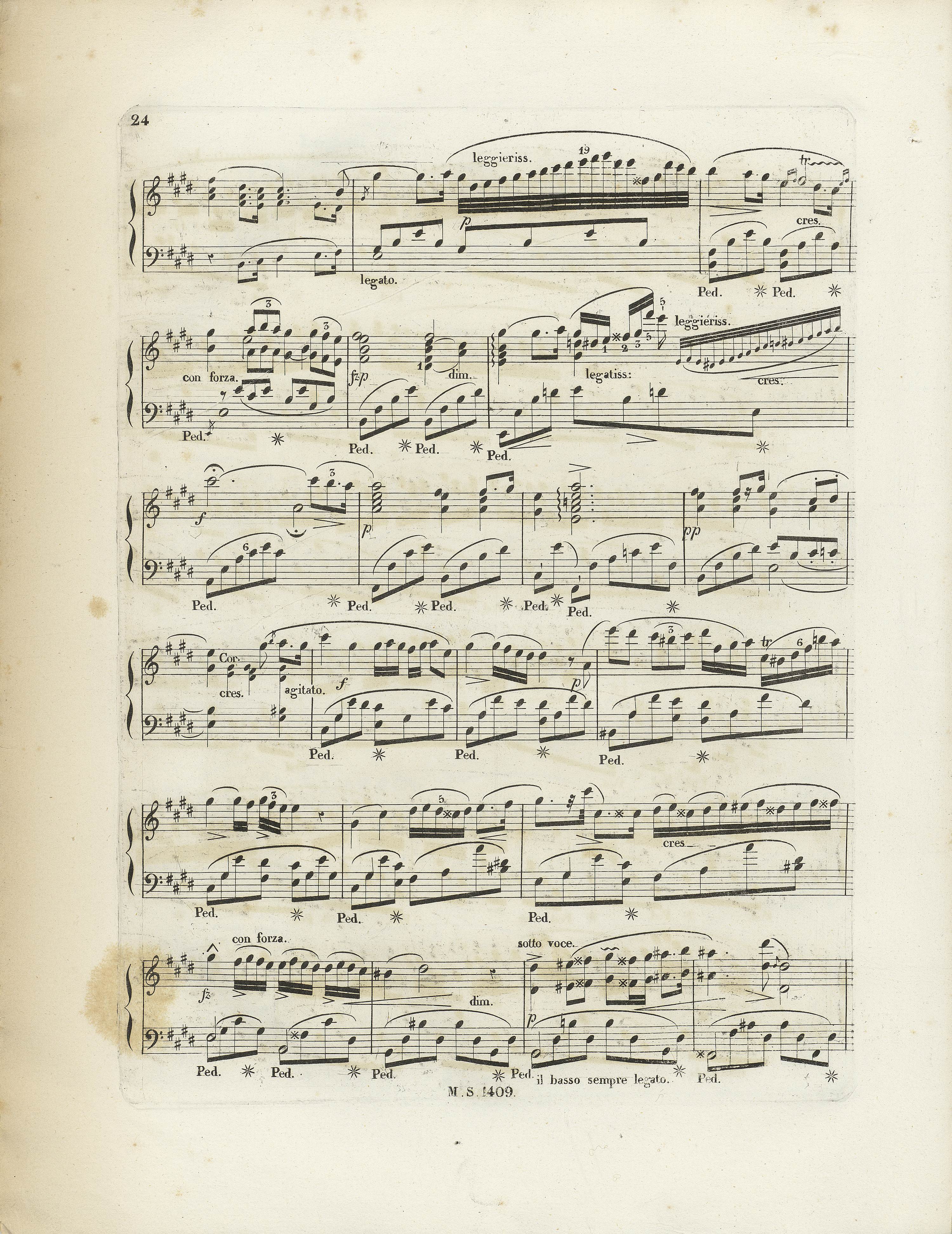Op. 2, Variations in B♭ major
Op. 10, 12 Etudes
Op. 11, Concerto in E minor
Op. 21, Concerto in F minor
Op. 22, Polonaise in E♭ major
Op. 24, 4 Mazurkas
Op. 25, 12 Etudes
Op. 26, 2 Polonaises
Op. 27, 2 Nocturnes
Op. 28, 24 Preludes
Op. 30, 4 Mazurkas
Op. 35, Sonata in B♭ minor
Op. 50, 3 Mazurkas
Op. 63, 3 Mazurkas
Op. 64, 3 Waltzes
(Op. 4), Sonata in C minor




Op. 11, Concerto in E minor, Mvt II
In FE (→GE), the last quaver in the L.H. (e) was placed under b1 in the R.H., which does not correspond to the rhythmic relationship resulting from the even filling of the last three semiquavers in the bar with small notes in the R.H. It may correspond to the notation of [A], but neither the first publishers of Chopin's pieces nor the composer himself were always precise in this matter. Due to this reason, in the main text we place that e according to the rhythmic division, just before the 7th note of the roulade (g 1). In EE, the quaver was placed even later than in FE (after c
1). In EE, the quaver was placed even later than in FE (after c 2), which must be an arbitrary decision of the editor (we reproduce this notation in graphic transcription only).
2), which must be an arbitrary decision of the editor (we reproduce this notation in graphic transcription only).
The performance should be based rather on intuition than on the geometry of the notation or strict calculations of rhythmic proportions, since both the context and the very notation suggest a sense of rhythmic freedom in this place.
Compare the passage in the sources »
category imprint: Differences between sources; Editorial revisions
issues: EE inaccuracies
notation: Rhythm

